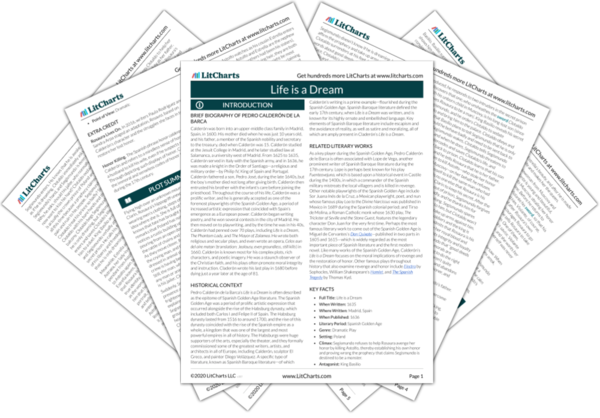The fact that Rosaura has met Segismundo three times, each time in a different disguise, again highlights the conflict between illusion and reality. By this point, it is impossible for Segismundo to know who Rosaura really is. Instead, reality is merely whatever illusion Rosaura presents to Segismundo. Rosaura’s sword is a symbol of her true identity, but even that is inconsistent with her gender, which further confuses Segismundo and distorts reality.
